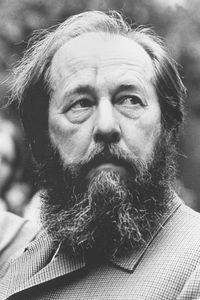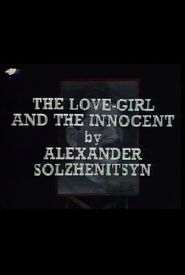Aleksandr Solzhenitsyn was a renowned Russian writer, born Aleksandr Isaakovich Solzhenitsyn on December 11, 1918, in Kislovodsk, Southern Russia. He was born six months after the tragic death of his father, an Army artillery officer, and was raised by his mother, who spoke English and French, and encouraged his interest in literature and science.
Solzhenitsyn began writing chapters for his book about the First World War in 1937 and studied at the Rostov State University, graduating with degrees in mathematics and physics. He also took correspondence courses in literature from the Moscow Institute of Philosophy, Literature, and History.
During World War II, Solzhenitsyn served as an artillery captain in the Red Army, fighting against the Nazis on the territory of East Prussia. He was arrested by the Soviet secret service in February 1945, after they opened his private letters and found one line critical of Joseph Stalin. Solzhenitsyn was tried in his absence and sentenced to 8 years of prison just for describing Stalin as a "man with a mustache" in a private letter to a friend.
Solzhenitsyn spent 8 years in Soviet Gulag prison-camps, where he was diagnosed with cancer of the stomach. He was forced to work as a miner, bricklayer, foundry-man, and mathematician, and his mathematical skills saved his life. He was released from prison and eventually used in the secret "sharashka" prison-camp for scientists.
After the death of Stalin in 1953, Solzhenitsyn was sent to a Tashkent hospital for tumor removal and radiation therapy. He described his experience in his novel "Cancer Ward". Solzhenitsyn secretly wrote a thorough account of his life in prison-camps, which became the content of his first official publication in 1962.
Solzhenitsyn's writings were published in the West, and he became one of the leading dissidents in the Soviet Union, active against the Soviet Communist regime. His main work "Gulag Archipelago" (1973) was inspired by the academic work of Anton Chekhov titled "Island of Sakhalin" (1895).
Solzhenitsyn was arrested again, charged with "anti-Soviet" treason, and exiled from the Soviet Union in 1974. He lived mostly in Cavendish, Vermont, USA, until after the collapse of the Soviet Union. Then he was invited by the new Russian president Boris Yeltsin and his Russian citizenship was restored. Solzhenitsyn returned to Russia in 1994 and was granted a suburban house in Moscow.
Back in Moscow, Solzhenitsyn enjoyed full recognition and wide publication of all his works. He was an active and important figure in Russian society, known for his independent position and sharp criticism of the declining state of affairs in Russia.



















